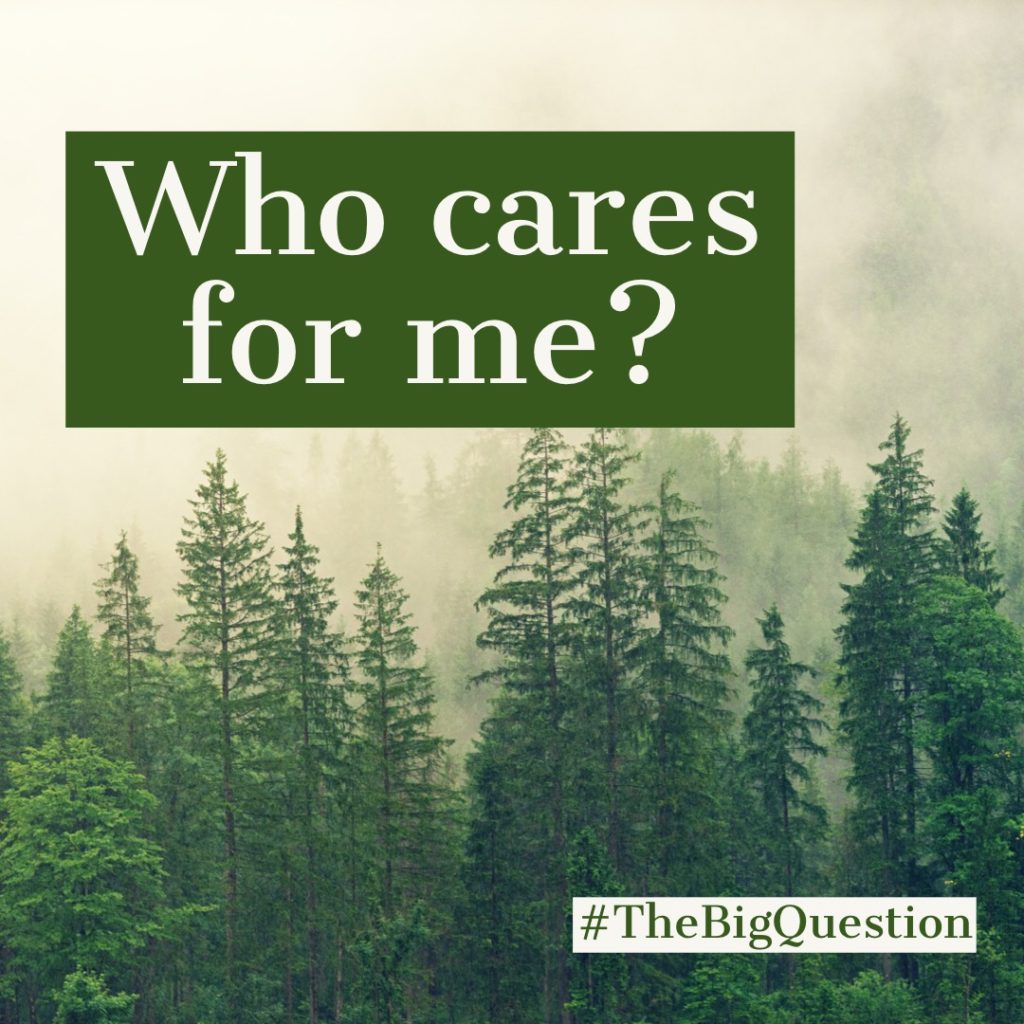Before I dig into this one, a little background on the word choice for this question. If you’ve read Nel Noddings or read what Chris and I had to say about the Ethic of Care in our book, then you might see where this is headed.

Taking tremendous liberties with Noddings’s work, let me sum it up this way. You care about the big pictures – poverty, homelessness, racism. You care for the specific humans – someone you know living in poverty, the family at your church struggling to keep their home, your friends who are people of color in a world of too little nuance and empathy.
So, when I think about who cares for me, I’m not considering those who are advocates of teachers or those who champion the rights of queer folks, or the band of people who have joined together to support guys named Zac. I’m talking about the people with whom I am in a caring relation. My parents, siblings, and other family members care for me. For many of us, though not all, this is true.
So, who cares for me in my work? This one gets a bit messier. As a classroom teacher, my students were literally in my care. My responsibility inside and outside of the school day was to care for my students. It’s the responsibility of any educator. It would have been unprofessional and unrealistic to expect my students to care for me. Take off the table the responsibility of the 140+ people with whom I was in most frequent and closest contact, it paints a bleak picture regarding sources of care.
This isn’t unusual. This is part of being a teacher. We are in constant contact with other humans and we would be wrong to expect them to care for us. Maybe you’ve witnessed or experienced a starvation of care this can create. I work with hundreds of educators across the country. Too frequently, I meet teachers who are angry, sarcastic, pessimistic, and closed off about their students. These are teachers who lack a structure of being cared for professionally. They have transferred the inappropriateness of expecting their students to care for them to a lack of expectation of being cared for by their colleagues and administrators. They’ve starved themselves or been starved by systems that fail to recognize caring for all is paramount to success.
Every educator is entitled to an expectation of professional care from the adults with whom they work.
Every educator is entitled to an expectation of professional care from the adults with whom they work.
I ask the question today because I constantly struggle with that sentence pf entitlement.
I deserve the care of my colleagues. To help internalize this, I have taken to reminding myself. My colleagues in my office care for me. Many of the principals and teachers in the district care for me. The coaches, interventionists, and administrative staff with whom I work care for me.
It is difficult for me to rely on others. While I would likely drop everything I’m doing to help out an acquaintance after a few minutes of conversation, I do not afford that same charity to myself. I need to. We all need to.
The people with whom I work and teach and learn every day care for me. Only when I accept that as true and presume it as I do my work will I be able to do better work.
Toward the end of last year, I started posting to Instagram pics I tagged as #TheBigQuestion. The thinking was to throw one question up there each day. Each question was designed to push our practice – yours and mine. It felt like folks responded to the questions, and I found myself carrying each one with me through the day. So, all of this is to say I’m committing to post these questions each day of #2019. I’ll be doing that in the morning. In the PM, I’ll be posting my thinking on the day’s question here on the blog. Since I love conversation, I’m hoping you will also make public your answers as they come. I’ll supply the questions, we’ll all share our answers, and – I’m hoping – have a more thoughtful year.